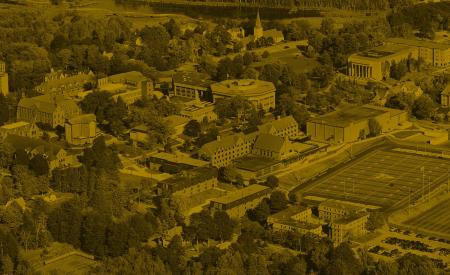Mount Allison to remove invasive goldfish from Ladies’ College Park pond
The chemistry and biology departments, in collaboration with the University’s facilities management department, will remove invasive goldfish from the Ladies’ College Park pond (also referred to as the Swan Pond) near Convocation Hall.
This research project will follow strict welfare protocols outlined by the Animal Care Committee (ACC), which oversees the use of animals in teaching and research in accordance with the guidelines provided by the Canadian Council for Animal Care.
This project is led by Chemistry and Biochemistry Professor Dr. Tyson MacCormack.
“Everything we do in my lab is focused on understanding how animals thrive under, or cope with, challenging environments,” says MacCormack. “Our study will improve our understanding of how stress tolerance in invasive species allows them to successfully out-compete native species.”
From fishing to experimentation, the goldfish will be handled according to welfare protocols approved by the ACC and relocated to the Harold Crabtree Aqualab. The project seeks to explore the survival mechanisms of goldfish, among the few vertebrates capable of enduring extended periods without oxygen.
“We hypothesize that alcohol production helps goldfish to prevent heart and brain swelling when oxygen supplies are limited,” he says. “Heart and brain swelling is a major cause of failure during heart attacks and strokes in humans, so this will contribute to our understanding of that problem.”
While much is already known about the ecological impact of goldfish, studying their basic biology may reveal important insights into these human health conditions, contributing to a bigger picture.
Goldfish were introduced to the pond as unwanted pets and have ultimately thrived due to their resilience in challenging conditions. Invasive species such as goldfish can have significant negative impacts on aquatic ecosystems by competing with native species, such as the banded killifish and golden shiners, for resources. Removing them will aid in restoring the natural balance of the pond's ecosystem, creating space and resources for native species to thrive again.
This collaboration between academic researchers and facilities management reinforces the University's commitment to environmental stewardship and research excellence. The launch of this research will establish a solid foundation for ongoing monitoring at the Ladies’ College Park pond.



